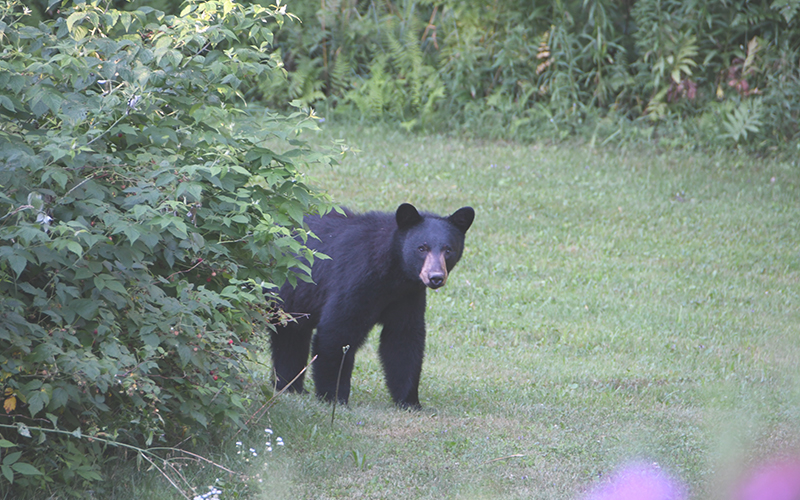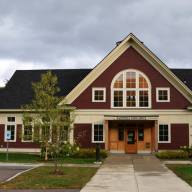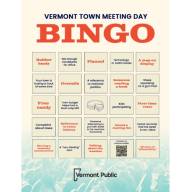Increasing human and black bear interactions and conflicts are not good for bears and a local coalition of volunteers wants to address the issue with education and resources.
Volunteers from the Fayston, Waitsfield and Warren Conservation Commissions, Moretown Recreation Committee, Friends of the Mad River, Stark Mountain Foundation and an employee committee of Sugarbush Resort have formed a committee to address the growing black bear concerns the Mad River Valley has been experiencing over the last few years.
To that end, the multi-week effort gets underway next week on Wednesday, March 30, when Jacyln Comeau, Vermont Fish and Wildlife biologist with the state’s bear project, will present a public presentation via Zoom from 5 to 6 p.m. designed to help people understand their ursine neighbors.
She will introduce general information about bear ecology and behavior with a focus on their life cycle and food needs. The presentation will also explore conflicts between people and bears, diving deeper into what draws them into backyards and what people can do to prevent this from happening.
The black bear (Ursus americanus) is the smallest of the three bear species found in North America. It is the only bear found in Vermont. Black bears are members of the order Carnivora, which also includes dogs, cats, weasels and raccoons. Vermont black bears are relatively shy animals and prefer wild areas with fewer people. However, human actions often encourage bears to come out of the forest by providing easy food sources. When bears become used to these easy food sources and have frequent contact with humans they become more dependent on human foods and less wary of people.
“Though very much in the early stages of planning, the initiative hopes to develop a centralized education and resource center for the community to learn about the Vermont black bear, develop a community bear ethos about how to live with and protect bears, and increase the community’s understanding of how human actions impact and affect bear behavior,” explained Sugarbush’s representative Margo Wade.
(Wade is a member of Sugarbush’s Safety, Environment and Wellness committee, an employee-run committee that focuses on issues and projects important to the committee as they pertain to safety, environment, and wellness.)
The Mad River Valley Community Black Bear initial volunteers began meeting remotely in November 2022. With the help of stewardMRV volunteers launched a black bear informational website at www.madrivervalley.com/stewardmrv/living-with-bears.
“Our hope is to increase the community's understanding of bears to help us all take steps to be active stewards of this iconic species,” said Chris Stephenson, a committee member from Moretown and Stark Mountain Foundation.
“To help everyone be more bear aware, the group is hosting a speaker series over the next several months, and they can “bearly” wait for you to join the educational journey,” Stephenson added.
The March meeting can be accessed via ZOOM at https://us02web.zoom.us/j/82946600822
The Stark Mountain Foundation will also be hosting The Bear Facts this weekend. This virtual presentation by the Vermont Institute of Science (VINS) takes place this Saturday, March 26, at 2 p.m. VINS will explore the life history and importance of these mammals in our natural world. This 45-minute presentation will be shown on the third floor of the Mad River Glen Basebox. It is a free event. There is a Zoom link option as well just in case Mad River Glen is unable to host due to closure. To sign up, go to www.starkmountain.org and click on events to register.
Stay tuned for more bear events and information in the coming months.














